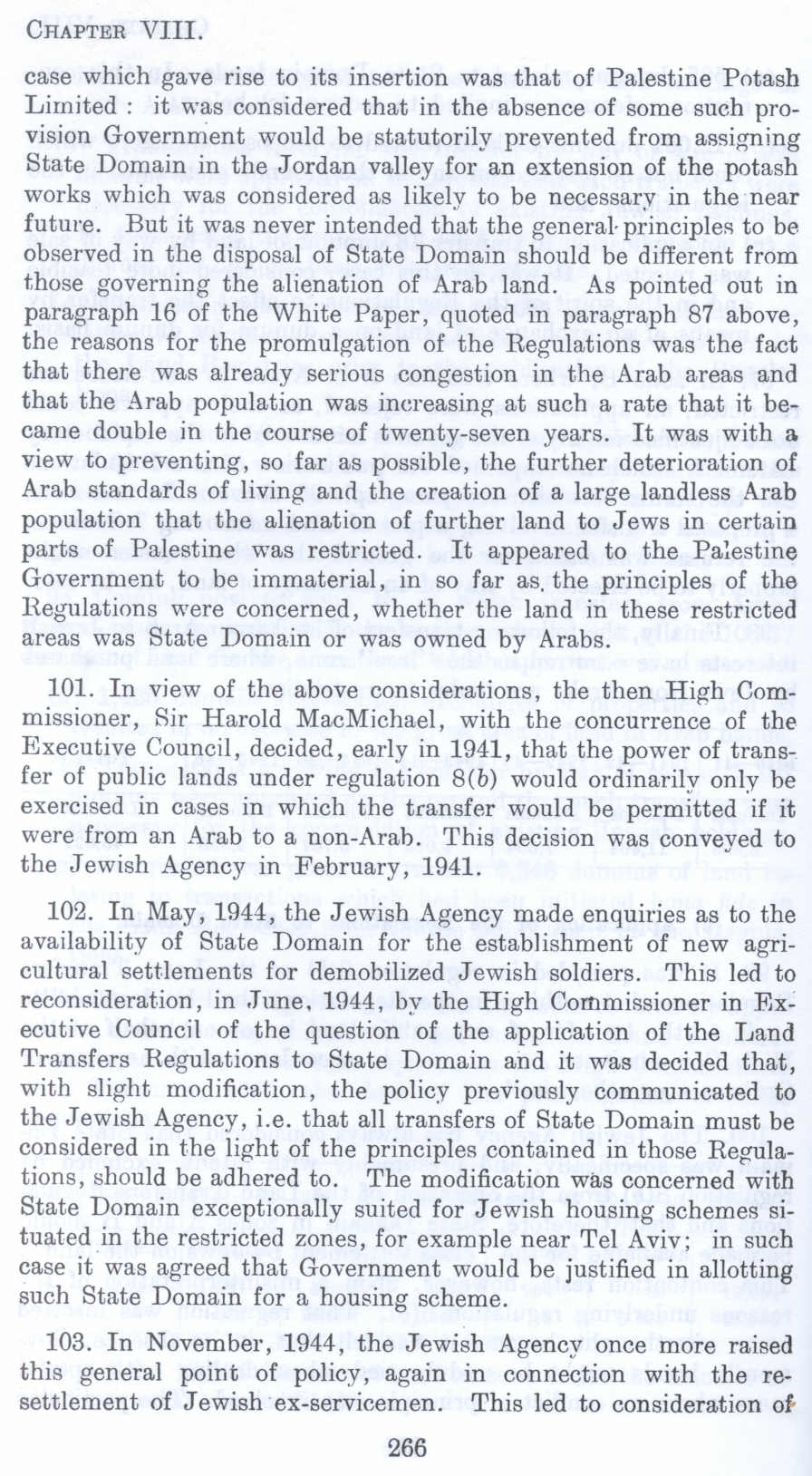| Prev | Next |  |
| Prev | Next |
| PalestineRemembered | About Us | Oral History | العربية | |
| Pictures | Zionist FAQs | Haavara | Maps | |
| Search |
| Camps |
| Districts |
| Acre |
| Baysan |
| Beersheba |
| Bethlehem |
| Gaza |
| Haifa |
| Hebron |
| Jaffa |
| Jericho |
| Jerusalem |
| Jinin |
| Nablus |
| Nazareth |
| Ramallah |
| al-Ramla |
| Safad |
| Tiberias |
| Tulkarm |
| Donate |
| Contact |
| Profile |
| Videos |
British Mandate: A Survey of Palestine: Volume I - Page 266 |
Disclaimer
The above documents, article, interviews, movies, podcasts, or stories reflects solely the research and opinions of its authors. PalestineRemembered.com makes its best effort to validate its contents.


Post Your Comment
*It should be NOTED that your email address won't be shared, and all communications between members will be routed via the website's mail server.
case which gave rise to its insertion was that of Palestine Potash Limited : it was considered that in the absence of some such provision Government would be statutorily prevented from assigning State Domain in the Jordan valley for an extension of the potash works which was considered as likely to be necessary in the near future. But it was never intended that the general• principles to be observed in the disposal of State Domain should be different from those governing the alienation of Arab land. As pointed out in paragraph 16 of the White Paper, quoted in paragraph 87 above, the reasons for the promulgation of the Regulations was the fact that there was already serious congestion in the Arab areas and that the Arab population was increasing at such a rate that it became double in the course of twenty-seven years. It was with a view to preventing, so far as possible, the further deterioration of Arab standards of living and the creation of a large landless Arab population that the alienation of further land to Jews in certain parts of Palestine was restricted. It appeared to the Palestine Government to be immaterial, in so far as. the principles of the Regulations were concerned, whether the land in these restricted areas was State Domain or was owned by Arabs.
101. In view of the above considerations, the then High Commissioner, Sir Harold MacMichael, with the concurrence of the Executive Council, decided, early in 1941, that the power of transfer of public lands under regulation 8(b) would ordinarily only be exercised in cases in which the transfer would be permitted if it were from an Arab to a non-Arab. This decision was conveyed to
the Jewish Agency in February, 1941. "
102. In May, 1944, the Jewish Agency made enquiries as to the availability of State Domain for the establishment of new agricultural settlements for demobilized Jewish soldiers. This led to reconsideration, in .Tune. 1944, by the High Commissioner in Executive Council of the question of the application of the Land Transfers Regulations to State Domain and it was decided that, with slight modification, the policy previously communicated to the Jewish Agency, i.e. that all transfers of State Domain must be considered in I-he light of the principles contained in those Regulations, should be adhered to. The modification was concerned with State Domain exceptionally suited for Jewish housing schemes situated in the restricted zones, for example near Tel Aviv; in such case it was agreed that Government would he justified in allotting such State Domain for a housing scheme.
103. In November, 1944, the Jewish Agency once more raised this general point of policy, again in connection with the resettlement of Jewish ex-servicemen. This led to consideration of
Page 266